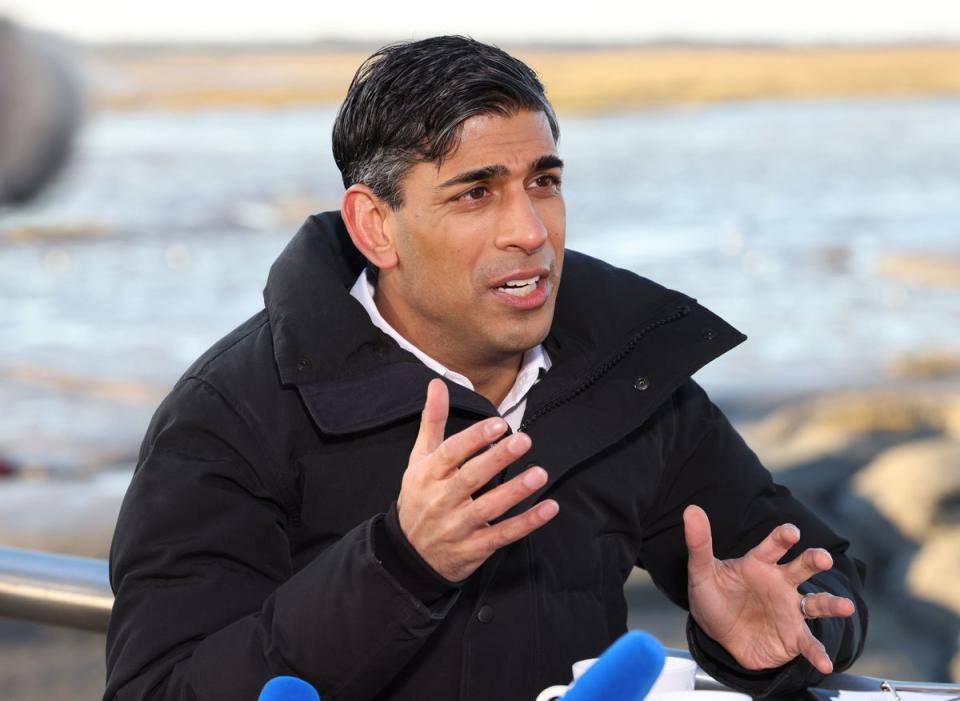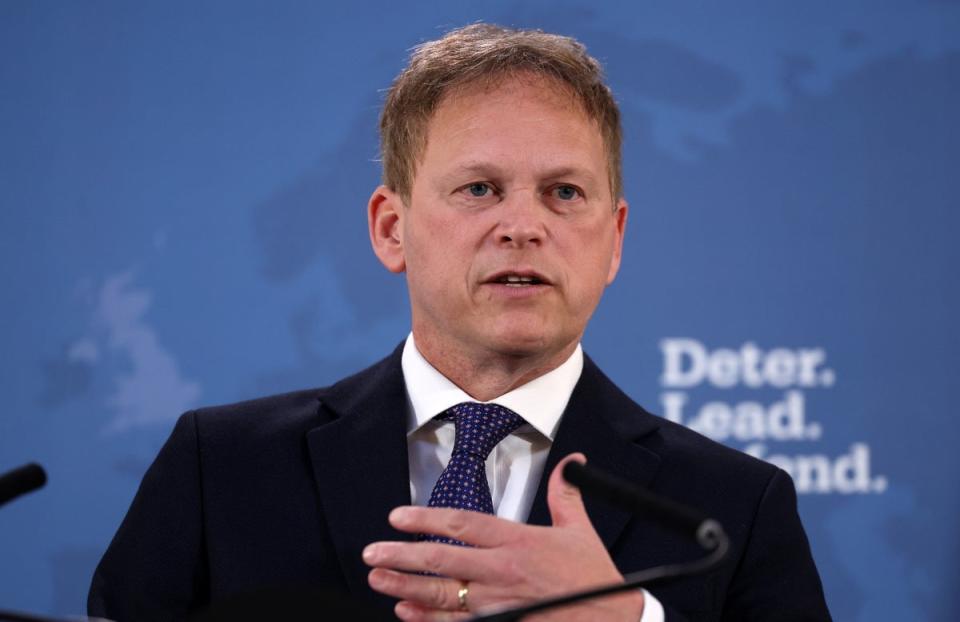UK will ‘back words with actions’, says Sunak as Houthis strike US-owned ship off Yemen coast
Rishi Sunak warned that his government remains “prepared to back our words with actions”, as Houthi missile attacks continued against ships in the Red Sea despite last week’s airstrikes against the rebels in Yemen.
The prime minister’s defiant statement in the Commons on Monday – suggesting he was prepared to sanction further strikes if necessary – came shortly after a missile struck a US-owned ship off the coast of Yemen.
Earlier, defence secretary Grant Shapps said Britain will “wait and see” before deciding to launch any fresh strikes – but also warned that if Houthi attacks don’t stop “we will then have to take the decisions that need to be taken”.
The US military’s central command on Monday afternoon confirmed the latest attack – putting the blame on Iran-aligned Houthi rebels. “The ship has reported no injuries or significant damage and is continuing its journey,” the central command said.
United Kingdom Maritime Trade Operations (UKMTO), which oversees Middle East waters, also reported that missile fire had struck a ship in the Gulf of Aden, about 100 miles southeast of the southern Yemen border.
“As a result of the impact, the vessel suffered limited damage to a cargo hold but is stable and is heading out of the area,” the US-based operator Eagle Bulk Shipping said in a statement. There were no reports of injuries or significant damage.

Mr Sunak defended his decision to sanction UK strikes against Houthi targets last week, insisting that military action need not lead to a wider escalation of violence in the region.
“The threats to shipping must cease. Illegally detained vessels and crews must be released. And we remain prepared to back our words with actions,” the Tory leader told the Commons.
The prime minister said all 13 planned targets were destroyed, with no evidence of civilian casualties. “I do not take decisions on the use of force lightly,” Mr Sunak said. “That is why I stress that this action was taken in self-defence. It was limited, not escalatory.”
The UK joined the US in targeting Houthi locations in Yemen last week as part of efforts to ensure international cargo vessels can travel through the vital shipping route after assaults by the Iran-backed militants.
Labour leader Sir Keir Starmer said his party backed the “targeted action”, but warned that any military operation must be “underpinned by a clear strategy”.
Some opposition leaders condemned Mr Sunak’s failure to seek the approval of parliament for strikes, with Liberal Democrat leader Ed Davey calling it “regrettable”, and the SNP’s Westminster leader urging the Tory leader to “do better”.
Sir Keir acknowledged that it is not always possible to hold a vote beforehand. But he warned Mr Sunak: “Scrutiny is not the enemy of strategy. Because while we back the action taken last week, these strikes still do bring risk; we must avoid escalation across the Middle East.”
The Houthis, who support Hamas in the Palestinian group’s war against Israel, claim they have targeted ships with links to Tel Aviv. But Mr Sunak told MPs that “we shouldn’t fall for their [the Houthis’] malign narrative that this is about Israel and Gaza”, adding: “They target ships from around the world.”
RAF air strikes, carried out alongside American allies last week, had looked to curtail the militants’ ability to disrupt international shipping, with cargo firms forced to reroute around the southern tip of Africa to avoid the Red Sea.
Washington on Saturday launched a new strike against a Houthi location in Yemen that was determined a threat, according to US officials.

Mr Shapps, asked whether the UK could join more strikes, told Sky News: “If we have to take further action, that is something that we will consider.”
During a later speech in central London, he said the strike against the Houthis was intended as a “single action” rather than a planned campaign.
The defence secretary also told the audience that the UK should prepare for further conflicts involving China, Iran, Russia and North Korea in the next five years.
Mr Sunak told Sky News that the UK government “will not hesitate to protect our security where required” when grilled on the possibility of fresh strikes in Yemen.
He also told MPs that he remained “committed” to parliamentary convention when it came to consulting parliament on military action, but it had been necesssary to hit the Houthis “at speed” at the end of last week.
The PM also said the UK was considering “all diplomatic tools” – including using sanctions against Iran if necessary – amid reports that the country has stepped up its weapons grade uranium enrichment.
It came as the government moved to ban the extremist Islamist group Hizb ut-Tahrir. Home secretary James Cleverly laid before parliament a draft order to proscribe the organisation under the Terrorism Act.
Security minister Tom Tugendhat said the group “encourages and promotes terrorism” as he condemned its “disgraceful celebration” of Hamas attacks on Israel.

 Yahoo News
Yahoo News 
